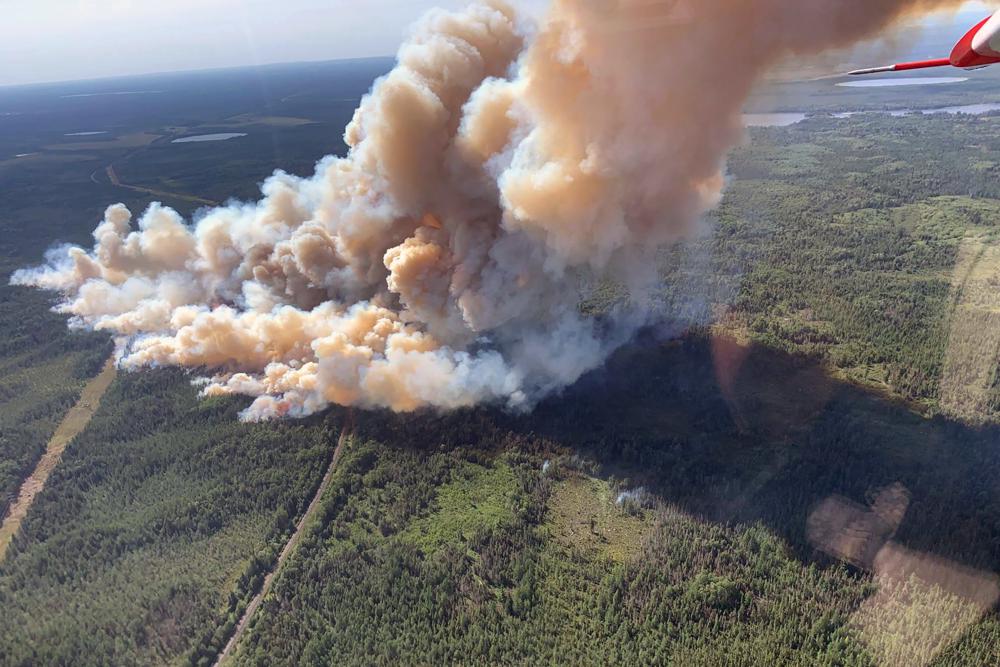Minnesota
Authorities attack Minnesota wildfire from air and ground

MINNEAPOLIS (AP) — Authorities fought a northeastern Minnesota wildfire from the air and on the ground Tuesday, following the evacuation of about 75 residences in the Superior National Forest.
The fire, which was first spotted Sunday near Greenwood Lake, had expanded to about 3.1 square miles (8 square kilometers) by Tuesday. The Minnesota National Guard is assisting in the firefighting efforts; warm weather and gusty winds from the south were forecast to continue for days.
“Full suppression tactics are being used to reduce fire spread,” forest officials said in a statement.
Two helicopters, one airplane, eight engines, two bulldozers, and two tracked vehicles were assigned to the fire Tuesday, with a dedicated incident management team scheduled to assume full command Wednesday morning.
Lake County sheriff’s deputies and emergency management personnel went door to door Monday to notify residents that they were in the evacuation zone near McDougal Lake, or left notes on doors if nobody was home. Many dwellings in the area, which is deep in the forest, are seasonal cabins.
Superior National Forest officials said in a statement that about 75 homes have been evacuated.
Two highways through the area were closed Monday as the firefighting effort picked up speed and the fire spread to the north.
The cause of the Greenwood Lake fire has not been determined. The lake is located about 15 miles (24 kilometers) southwest of Isabella, the nearest town.
While the fire hasn’t reached the Boundary Waters Canoe Area, the Forest Service on Tuesday closed a small portion of the wilderness area west of Isabella Lake.
The Superior National Forest also continues to monitor or fight several smaller fires in remote parts of the Boundary Waters and near Ely, using tanker planes, helicopters and bulldozers.
Meanwhile, the state Department of Natural Resources was fighting two other wildfires to the west that were detected over the weekend in remote parts of sparsely populated Lake of the Woods County, which had grown to 80 and 60 acres (32 and 24 hectares).
Drought conditions from the western U.S. across the northern plains to Minnesota have raised wildfire risks across a broad swath of the country.
Firefighters in California faced more dangerously windy weather Tuesday as they struggled to keep the nation’s largest wildfire from moving toward Susanville, a Northern California county seat, and other small mountain communities. The Dixie Fire is the largest of nearly 100 major wildfires burning across more than a dozen Western states.

